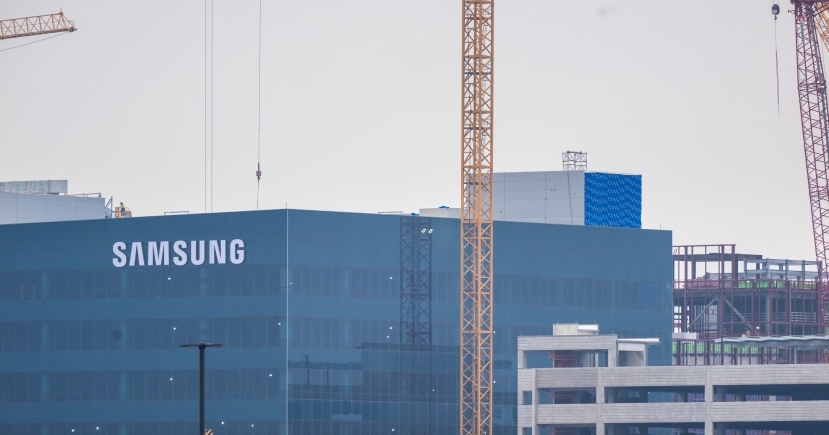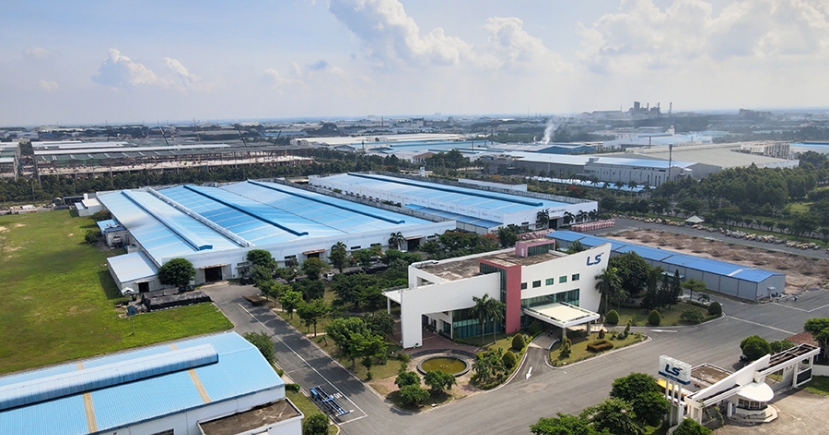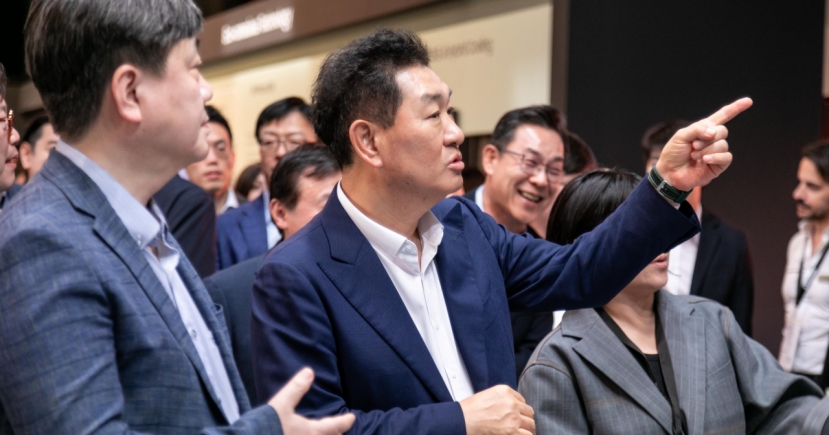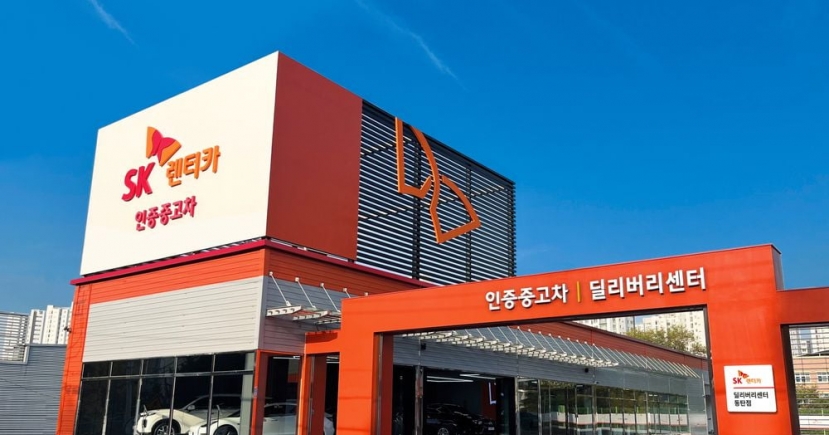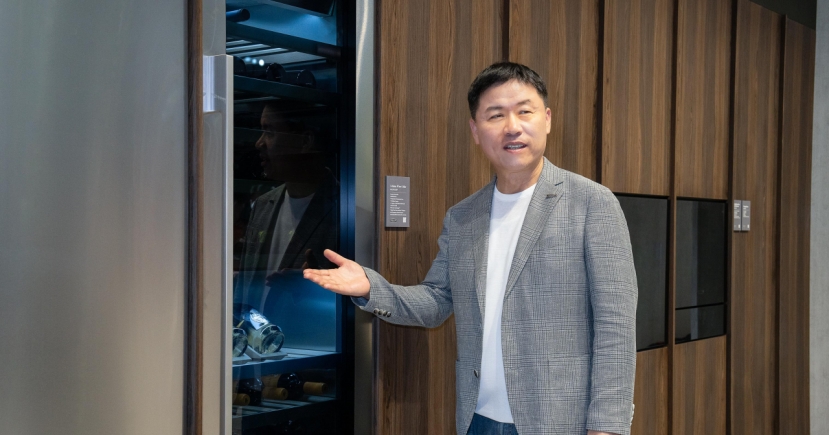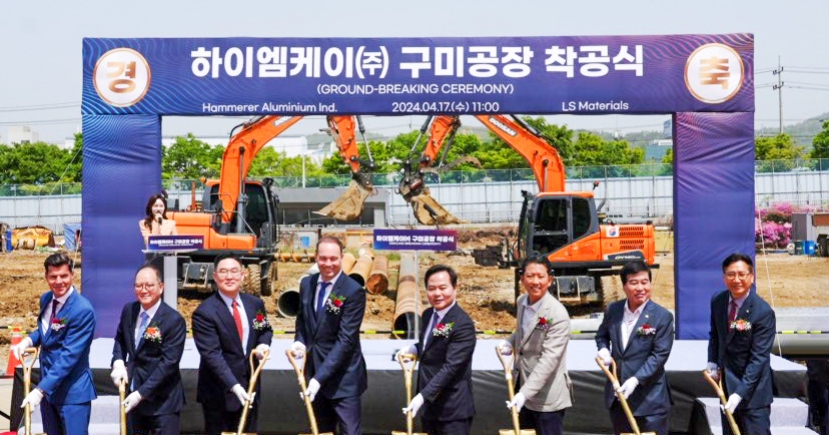Market Now
New year to brace for challenges, embrace changes: Hyundai Motor chief
 |
Hyundai Motor Group Executive Chair Chung Euisun takes a photo with employees after a townhall meeting at the company’s Namyang research center, Gyeonggi Province on Tuesday. (Hyundai Motor Group) |
Hyundai Motor Group Executive Chair Chung Euisun on Tuesday held a rare town hall meeting with approximately 600 employees, during which he stressed that the automotive company would brace for challenges and embrace changes to tackle an economic slowdown.
“We should not be afraid of upcoming crises and (helplessly) face the aftermath, but leapfrog toward sustainable growth with active innovation,” Chung said during the New Year's event held at the company’s Namyang Research and Development Center in Gyeonggi Province.
Chung reiterated that the company will become the first mover in the electric vehicle and software industry and growth sector.
“Hyundai made a successful start toward vehicle electrification last year when the Ioniq 5 and EV6 were each awarded with World Car of the Year and Car of the Year in Europe. We became a top five carmaker in global electric vehicle sales as well,” said Chung.
The company plans to launch new electric vehicles ranging from compact cars the EV9, Kona and Ray EV to its flagship EVs.
Transforming into a software-centered system is also a key strategy for the carmaker to gain a competitive edge in the Software Defined Vehicle market. Software Defined Vehicle automatically downloads software updates that remotely improves the car’s performance.
By 2025, the carmaker will adopt over-the-air software updates for cars sold in global markets as well as a data platform that collects and analyzes the life cycle of a car to enhance customer experience.
For key drivers of growth, Chung highlighted the self-driving, future mobility, robotics, energy and raw materials sectors.
Within the first half of this year, the company will launch the G90 and EV9 in South Korea with a level 3 self-driving system that enables autonomous driving in local highways. In partnership with Uber and other car sharing platforms, it plans to open an Ioniq 5 robotaxi service -- a level 4 automotive driving system without intervention of a driver -- in the US through Motional, a joint venture between Hyundai Motor Group and US-based Aptiv.
As for future mobility, Hyundai looks to introduce additional lineups to highly customized purpose-built vehicles on the Skateboard Platform -- a simple car framework that packs the motors and battery pack in a chassis that looks like a skateboard -- by 2025, and develop Advanced Air Mobility prototypes with Rolls Royce and Safran, said Chung.
Founded in 2021, Hyundai’s Boston Dynamics Artificial Intelligence Institute will be at the vanguard of innovation to create synergy with the group’s businesses.
“We plan to expand energy business including small modular reactors and develop highly intensive steel and innovative raw materials for future mobility,” said Chung.
Business strategies aside, he urged that customer trust comes first. “Only if we do due diligence in quality control and safety management will customers join our journey.”
Stressing that innovation comes from a flexible corporate culture, Chung added that if employees fear change, the workplace will be contaminated like standing water. We should listen to our potential clients and employees from future generations to adapt to the ever-changing environment, Chung said.
Hyundai Motor Group in the afternoon announced that it aims to sell 4.3 million cars for the year, a more ambitious goal after becoming a global top three carmaker in 2021.
The company laid out its goals of selling 781,000 cars in the domestic market and 3.5 million units worldwide, up from last year by 13.4 percent and 32.7 percent, respectively.
This year, the carmaker plans to adapt to rapid changes in the market, accelerate vehicle electrification, optimize supply chain management and tackle international environmental regulations to expand its market share and profit.
Adding its affiliate Kia’s sales record of 2.9 million units, the group sold a total of 6.8 million cars in 2021, becoming the third-largest carmaker following Toyota and Volkswagen.
“Due to the resurgence of COVID-19, the chip shortage, rising inflation and economic slowdown, domestic sales slightly dropped, but global sales increased in the US, European and emerging markets,” the company said.
Hyundai sold 3.9 million cars last year -- 688,884 units here and 3.3 million units overseas, a drop by 5.2 percent and an increase of 2.9 percent, respectively.
As for domestic sales, it sold 185,553 sedans including the Grandeur, Ioniq 6, Sonata and Avante. Sales of recreational vehicles such as the Palisade, Santa Fe, Ioniq 5, Tucson and Casper came to 213,710 units. It sold 135,045 units of the premium car model Genesis.
Piggybacking on the electric vehicle market boom, its sales of EVs soared by 65.8 percent to 70,372 units.
Expanding its footing overseas, the carmaker plans to launch fully changed models of the Kona, Santa Fe and Ioniq 5 N model and target Southeast Asia as a key market.
By Byun Hye-jin (hyejin2@heraldcorp.com)


